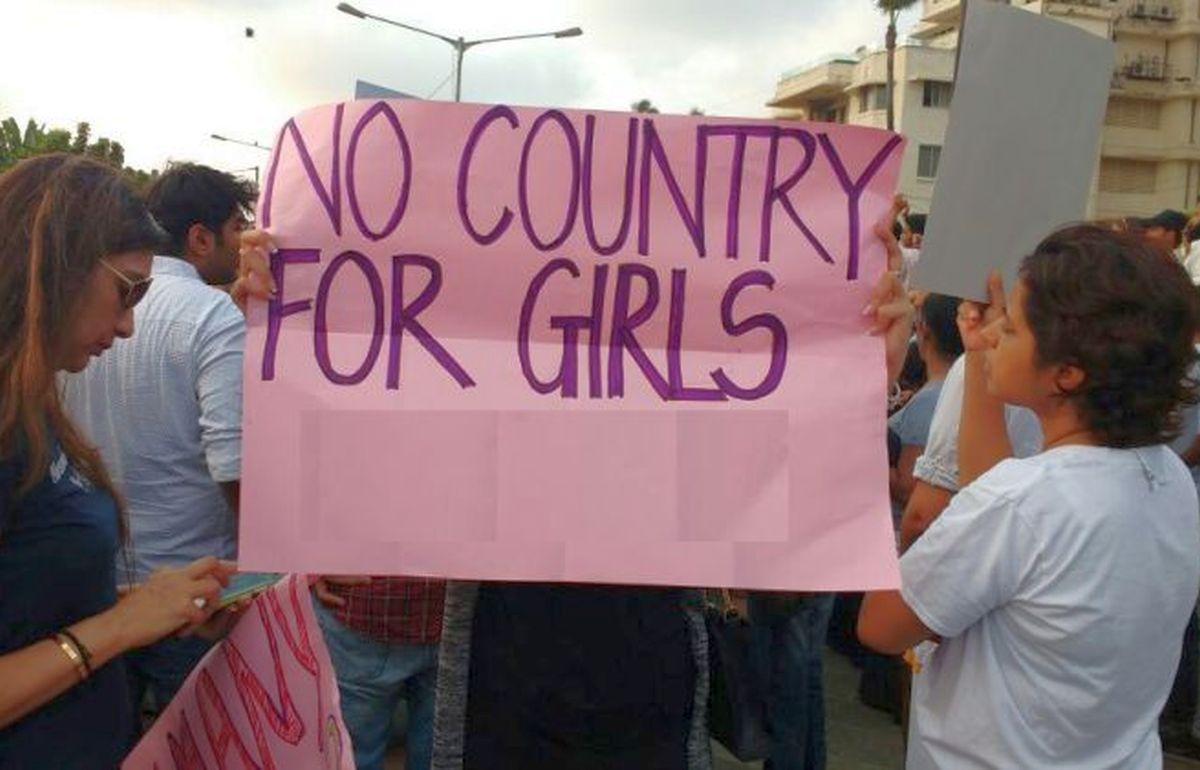In a bid to curb heinous crimes against women and children in Maharashtra, the state cabinet on Wednesday approved a draft bill that has provisions for stern punishment, including the death penalty, life sentence, and hefty fines, for the perpetrators, and also speedy trial.

The draft bill seeks to amend relevant sections of the Indian Penal Code, Code of Criminal Procedure and the Protection of Children from Sexual Offences (POCSO) Act for the proposed law's application in the state.
The cabinet approved the draft bill at a meeting in Mumbai and it will be tabled in the state legislature during its upcoming winter session, Home Minister Anil Deshmukh told reporters after the meeting.
A two-day winter session of the legislature begins in Mumbai from December 14.
He said the bill, to be called the 'Shakti Act', will come up for discussion and approval in both houses of the legislature.
It provides for completing probe in a case within 15 days and trial within 30 days, Deshmukh said.
After getting the house nod, the bill will be sent to the Central government for approval and Presidential assent, Deshmukh said.
A statement from the Chief Minister's Office (CMO) said the bill will be tabled in the legislature in two parts -- the Maharashtra Shakti Criminal Law (Maharashtra Amendment) Act, 2020 and the Special Court and Machinery for Implementation of Maharashtra Shakti Criminal Law, 2020.
The provisions of the new law aim to control heinous sexual offences against women and children, the minister said.
It provides for completing investigation and trial within a stipulated time-frame and stringent punishment, including the death penalty and heavy fines, for the culprits, Deshmukh said.
Special police teams and separate courts will be set up for investigation and trial of cases against women and children, according to the draft bill.
The perpetrators, if found guilty, will be punished with imprisonment for life for not less than 10 years but may extend to the remainder of natural life or with death in cases which have characteristics of being heinous in nature, it said.
Under the proposed legislation, a sum of Rs 10 lakh will be given to an acid attack victim for plastic surgery and facial reconstruction and the amount will be collected as fine from the convict.
Investigation shall be completed within a period of 15 working days from the date of registration of an offence.
Reasons for not doing so shall be recorded in writing by the investigating officer concerned and these may include inability to identify the perpetrator, it said.
Then the probe period will be extended up to seven working days. After a charge-sheet is filed, the trial shall be conducted on a day-to-day basis and completed within a period of 30 working days, according to the draft bill.
Some cases will be tried in-camera for recording of evidence of victims and witnesses who are vulnerable, it said.
Under the proposed law, duration of investigation will be 15 working days and for trial 30 working days, down from the exiting two months in both cases, the CMO statement said.
The time for appeal has been brought down from the existing six months to 45 days, it said.
As many as 36 special courts, each having a special public prosecutor, have been proposed to be set up to deal with cases registered under the Shakti Act, the statement said.
According to the Shakti Act, threatening and intimidating women on social media, making false complaints of rape, molestation and acid attack, non-cooperation in investigation, disclosure of victims identity in case of molestation and acid attack will also be considered crime.
The Shakti Act is modelled on the lines of Andhra Pradesh's Disha Act, which was brought last year to curb crime against women and children after a veterinarian was raped and murdered in Hyderabad, triggering widespread public outrage.
Deshmukh had led a team of government officials early this year to Andhra Pradesh, where he held discussions with Chief Minister YS Jagan Mohan Reddy, Home Minister M Sucharita and others on the Disha Act.
Later, a committee headed by Ashwini Dorje, director, Maharashtra Police Academy, was set up to study the Disha Act and prepare a similar law for the state.
Subsequently, a cabinet sub-committee headed by PWD minister Ashok Chavan was set up to approve the draft Act and put it before the cabinet for clearance.